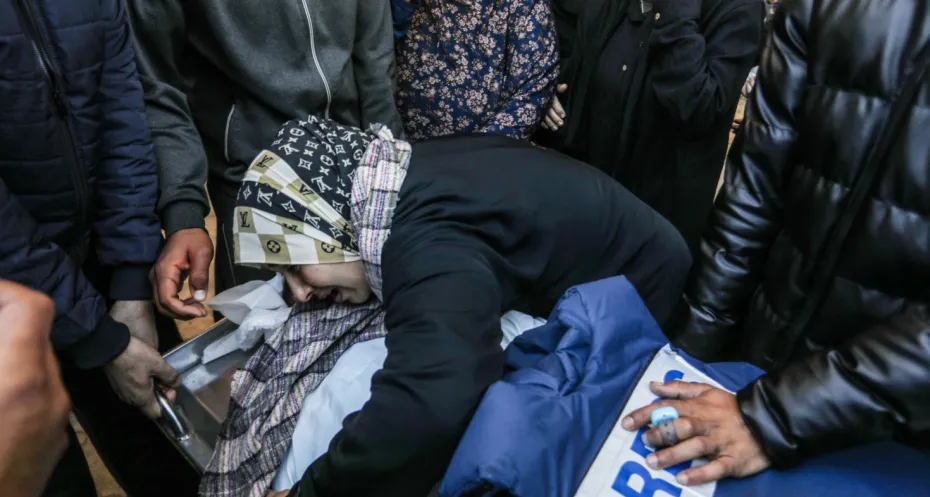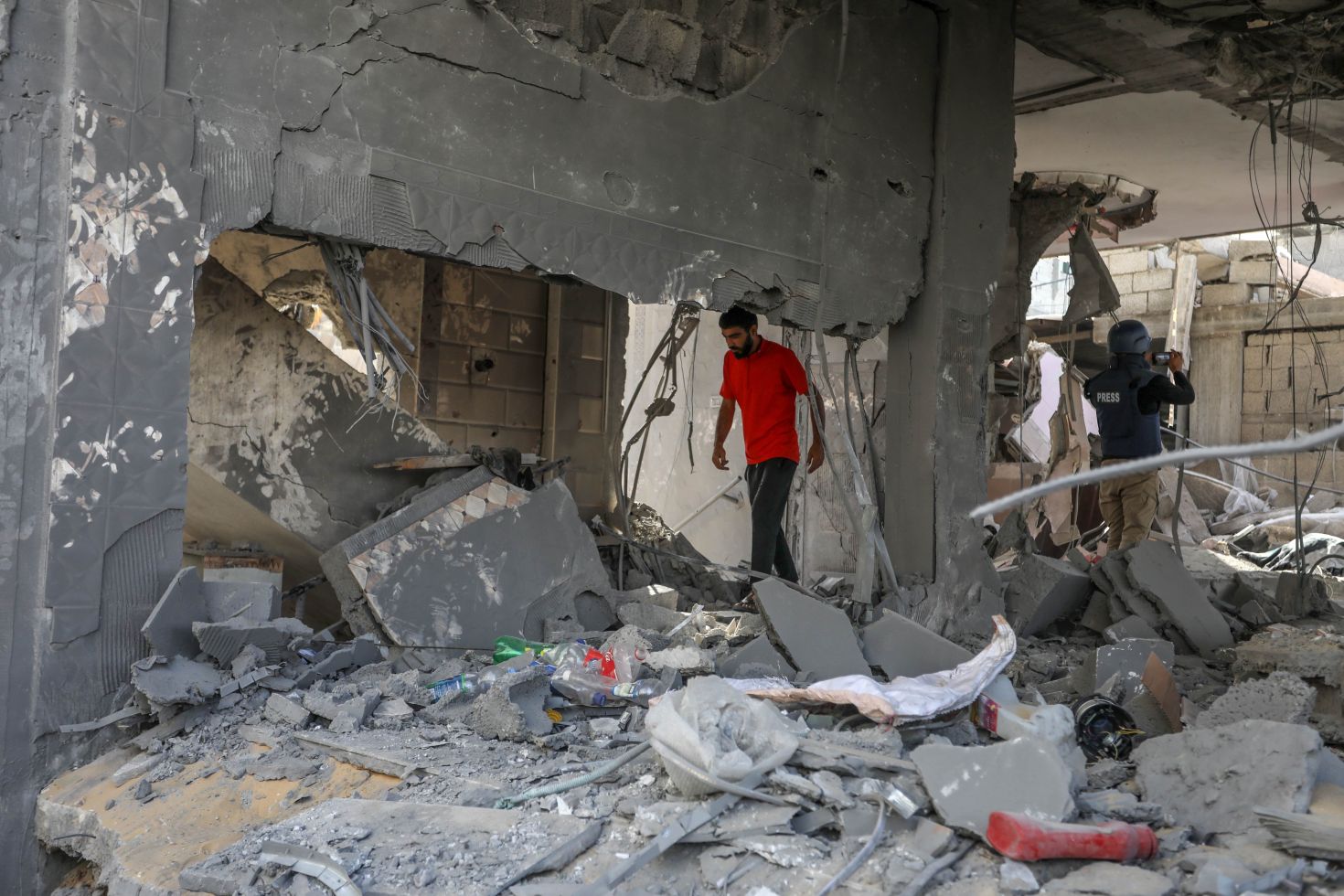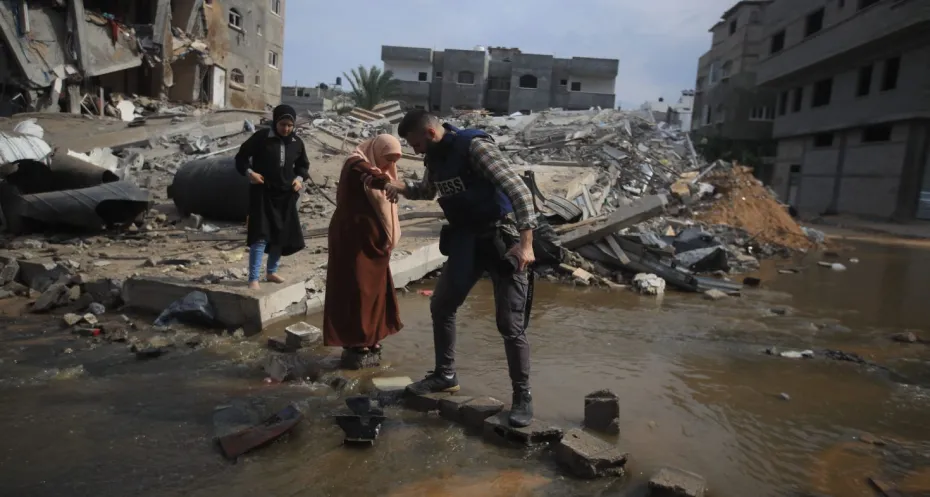Alarming image of safety and living conditions Palestinian journalists

Multiple surveys distributed to Palestinian journalists, conducted by Arab Reporters for Investigative Journalism (ARIJ), reveal a shocking picture of their safety and living conditions. Ninety-six per cent of the journalists surveyed have had to leave their homes, and for 88 per cent of them, this was because their homes were destroyed by bombings.
ARIJ carried out these surveys over different time periods to gain a clearer understanding of the far-reaching consequences of Israel's war in Gaza for Palestinian journalists. The latest survey involved 383 journalists who are currently active, or were active, in Gaza.
Arab Reporters for Investigative Journalism (ARIJ) is the leading non-profit organisation dedicated to investigative journalism across the Arab world. Founded in 2005, it is committed to supporting investigative journalists and fact-checkers who work to uncover the truth, hold perpetrators accountable, and restore public trust in the media, despite the numerous threats and challenges in the region. ARIJ is one of Free Press Unlimited’s partners in the area.
The investigation confirms the outcome of previous investigations by the Palestinian Journalists Syndicate, among others. This organisation, with which Free Press Unlimited cooperates, has also recorded an unprecedented number of violations of journalists' security and rights. Filastiniyat, an alliance of women journalists, is also constantly monitoring the situation of journalists.
Inhumane
According to ARIJ, the conditions are inhumane on many levels. Over all surveys conducted, a total of 512 journalists participated. Of the 96 per cent who had to leave their homes, a large proportion is now living in tents in refugee camps. There is a lack of everything: food, clean drinking water, clothing, blankets, and hygiene facilities.

Nearly all the journalists reported the confiscation or destruction of their equipment. Ninety-two per cent of the respondents experienced this. Since 7 October 2023, Free Press Unlimited has provided emergency aid to 267 journalists in Palestine through its emergency fund, Reporters Respond. A significant portion of the aid involved supplying new equipment. ARIJ has also focused its efforts on this. According to the collective, the loss of equipment results in an immediate loss of work and, consequently, purpose. Documenting atrocities is vital for holding perpetrators accountable.
Power outages
Frequent power outages and poor internet connections make it extremely difficult for journalists to carry out their work. Furthermore, the costs are prohibitively high, not only for water and food but also for fuel, limiting journalists’ ability to travel. Many journalists do not have access to safety equipment, such as helmets and ballistic vests. Some have indicated they avoid wearing such gear because it makes them targets.
"As a woman working freelance, the challenges are doubled; from transportation difficulties that force me to walk long distances, to the daily challenges posed by bombings from every direction around me." - quote from one of the participating journalists
The psychological impact of these conditions on journalists in Gaza and the occupied territories is profound. ARIJ states that these effects are almost impossible to comprehend. The investigation includes a section titled “In Their Own Words,” where journalists testify to their hardships. Everyone lives in constant fear on a daily basis.
Mental resilience
Free Press Unlimited has observed similar experiences. Through a special programme in collaboration with Wattan Media Network, FPU has contributed to training journalists to combat disinformation, rumours, and hate speech. Part of this training involved helping journalists build mental resilience against the continuous stream of harrowing images they must process to verify facts.
ARIJ uses the collected data in stories published through Forbidden Stories, an international journalistic collaboration that utilises collectively gathered factual material. Multiple media outlets can access and use this material for their publications.
The stories produced as part of the Gaza Project meticulously document evidence suggesting that journalists are deliberately targeted by the Israeli army. The full findings of ARIJ's surveys can also be accessed on their website.



